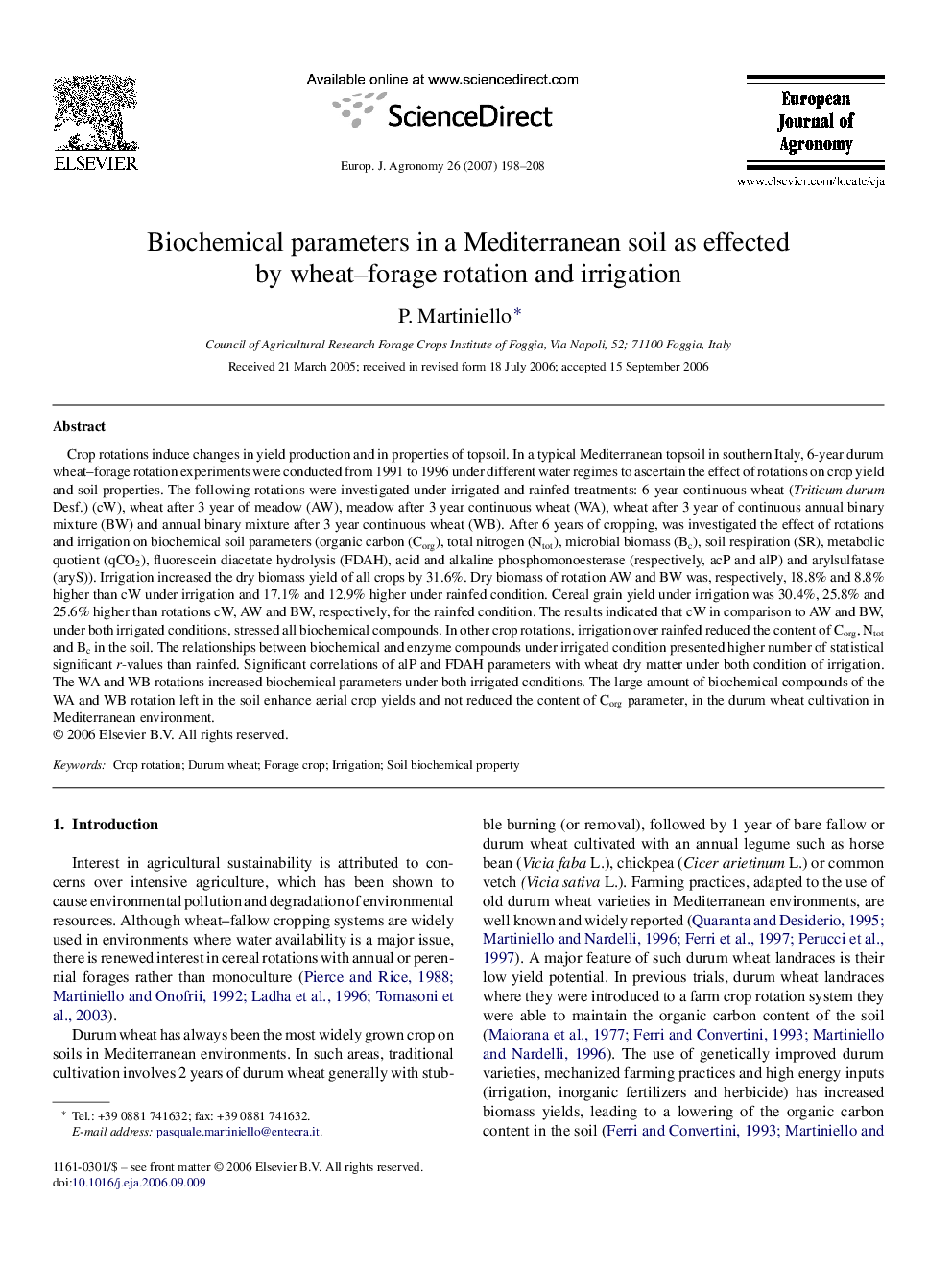| Article ID | Journal | Published Year | Pages | File Type |
|---|---|---|---|---|
| 4509635 | European Journal of Agronomy | 2007 | 11 Pages |
Crop rotations induce changes in yield production and in properties of topsoil. In a typical Mediterranean topsoil in southern Italy, 6-year durum wheat–forage rotation experiments were conducted from 1991 to 1996 under different water regimes to ascertain the effect of rotations on crop yield and soil properties. The following rotations were investigated under irrigated and rainfed treatments: 6-year continuous wheat (Triticum durum Desf.) (cW), wheat after 3 year of meadow (AW), meadow after 3 year continuous wheat (WA), wheat after 3 year of continuous annual binary mixture (BW) and annual binary mixture after 3 year continuous wheat (WB). After 6 years of cropping, was investigated the effect of rotations and irrigation on biochemical soil parameters (organic carbon (Corg), total nitrogen (Ntot), microbial biomass (Bc), soil respiration (SR), metabolic quotient (qCO2), fluorescein diacetate hydrolysis (FDAH), acid and alkaline phosphomonoesterase (respectively, acP and alP) and arylsulfatase (aryS)). Irrigation increased the dry biomass yield of all crops by 31.6%. Dry biomass of rotation AW and BW was, respectively, 18.8% and 8.8% higher than cW under irrigation and 17.1% and 12.9% higher under rainfed condition. Cereal grain yield under irrigation was 30.4%, 25.8% and 25.6% higher than rotations cW, AW and BW, respectively, for the rainfed condition. The results indicated that cW in comparison to AW and BW, under both irrigated conditions, stressed all biochemical compounds. In other crop rotations, irrigation over rainfed reduced the content of Corg, Ntot and Bc in the soil. The relationships between biochemical and enzyme compounds under irrigated condition presented higher number of statistical significant r-values than rainfed. Significant correlations of alP and FDAH parameters with wheat dry matter under both condition of irrigation. The WA and WB rotations increased biochemical parameters under both irrigated conditions. The large amount of biochemical compounds of the WA and WB rotation left in the soil enhance aerial crop yields and not reduced the content of Corg parameter, in the durum wheat cultivation in Mediterranean environment.
